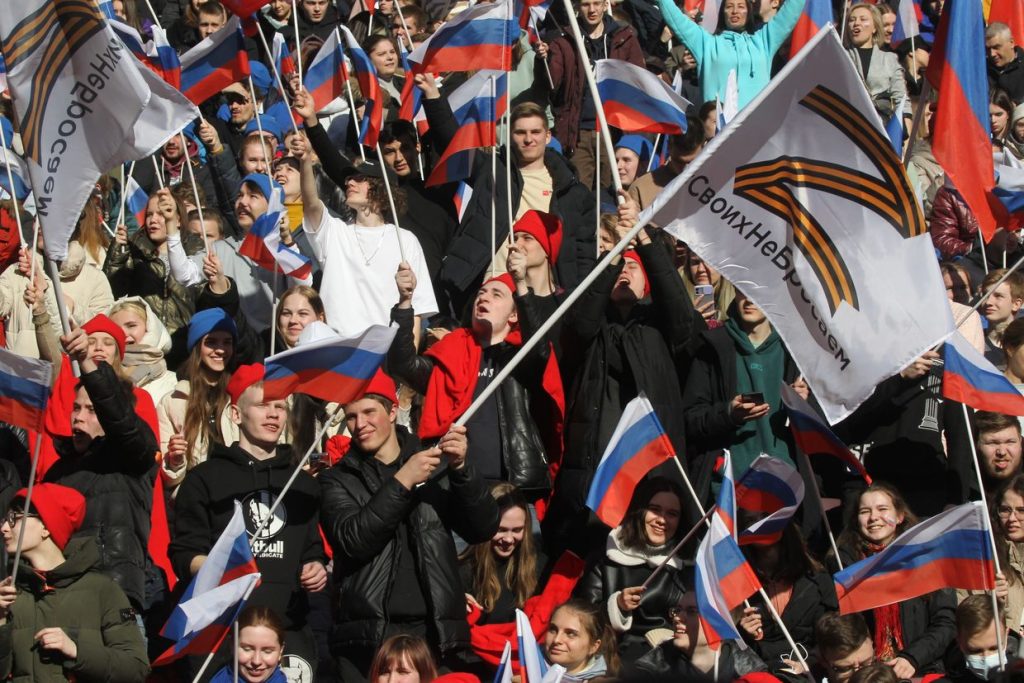The aftermath of the Crocus City Hall attack in Moscow, allegedly perpetrated by followers of the Islamic State from Central Asian Tajikistan, has led to increased racial discrimination and violence against migrants and ethnic minorities in Russia. Adam, a Tajik migrant living in Moscow, faces scrutiny, suspicion, and discrimination on a daily basis. The state’s response to the attack, characterized by deportations, raids, and toughened immigration policies, reflects a broader climate of intolerance and hostility towards foreigners. The suppression of civil liberties and targeting of minorities contribute to a growing sense of fear and discrimination among vulnerable groups.
Public xenophobia in Russia is seen as beneficial for the regime, as it diverts attention away from real societal problems and creates a false sense of political participation among the population. Ethnic minorities like Maryam, a Muslim Chechen woman, experience alienation and hostility in their daily lives, with instances of denial of services and verbal abuse becoming more prevalent. The normalization of hateful rhetoric and violence towards non-Russians has created an extreme environment of xenophobia, making it difficult for individuals like Alexey Kim, a refugee from Buryatia, to feel safe and thrive in Russian society.
The human cost of the rising tide of racism and xenophobia in Russia is evident in the stories of individuals like Adam, Maryam, and Kim. Their experiences shed light on the complex interplay of terrorism, migration, and racial tensions that pose significant challenges to the fabric of Russian society. Despite the growing discrimination and violence, there is a lack of support and solidarity from the general population, with many remaining indifferent or even complicit in enabling autocracy. The state’s crackdown on minorities and immigrants following the terrorist attack reflects a broader pattern of human rights violations and discrimination in Russia.
The state violence and discrimination faced by minorities in Russia have been exacerbated in the aftermath of the Moscow mass shooting. The use of torture, arbitrary arrests, and suppression of dissent create a hostile atmosphere for vulnerable groups, with ethnic minorities bearing the brunt of state-sanctioned violence. The scapegoating of individual victims through xenophobic aggression deflects attention away from systemic issues of inequality and oppression, serving the regime’s interests in maintaining control and diverting public discontent.
The gross violations of human rights and the increase in xenophobic attacks against migrants and minorities in Russia have been highlighted by international organizations like Human Rights Watch and Amnesty International. The targeting of non-Russians in the wake of the Crocus City Hall attack reflects a broader trend of discrimination and violence towards marginalized communities in the country. The growing challenges faced by migrants seeking refuge or opportunity in Russia underscore the urgent need for protection and support for vulnerable populations in the face of rising xenophobia and intolerance.
The deepening divide and hostility towards non-Russians in Russia, fueled by the aftermath of the terrorist attack and state-sponsored discrimination, illustrate the urgent need for action to address the systemic issues of racism and xenophobia in the country. The stories of individuals like Adam, Maryam, and Kim highlight the human impact of intolerance and discrimination, calling for greater awareness, solidarity, and support for marginalized communities in the face of growing hostility and violence. The ongoing struggle for human rights and dignity in Russia requires collective action and advocacy to challenge discriminatory practices and ensure the safety and well-being of all individuals, regardless of their background or ethnicity.


